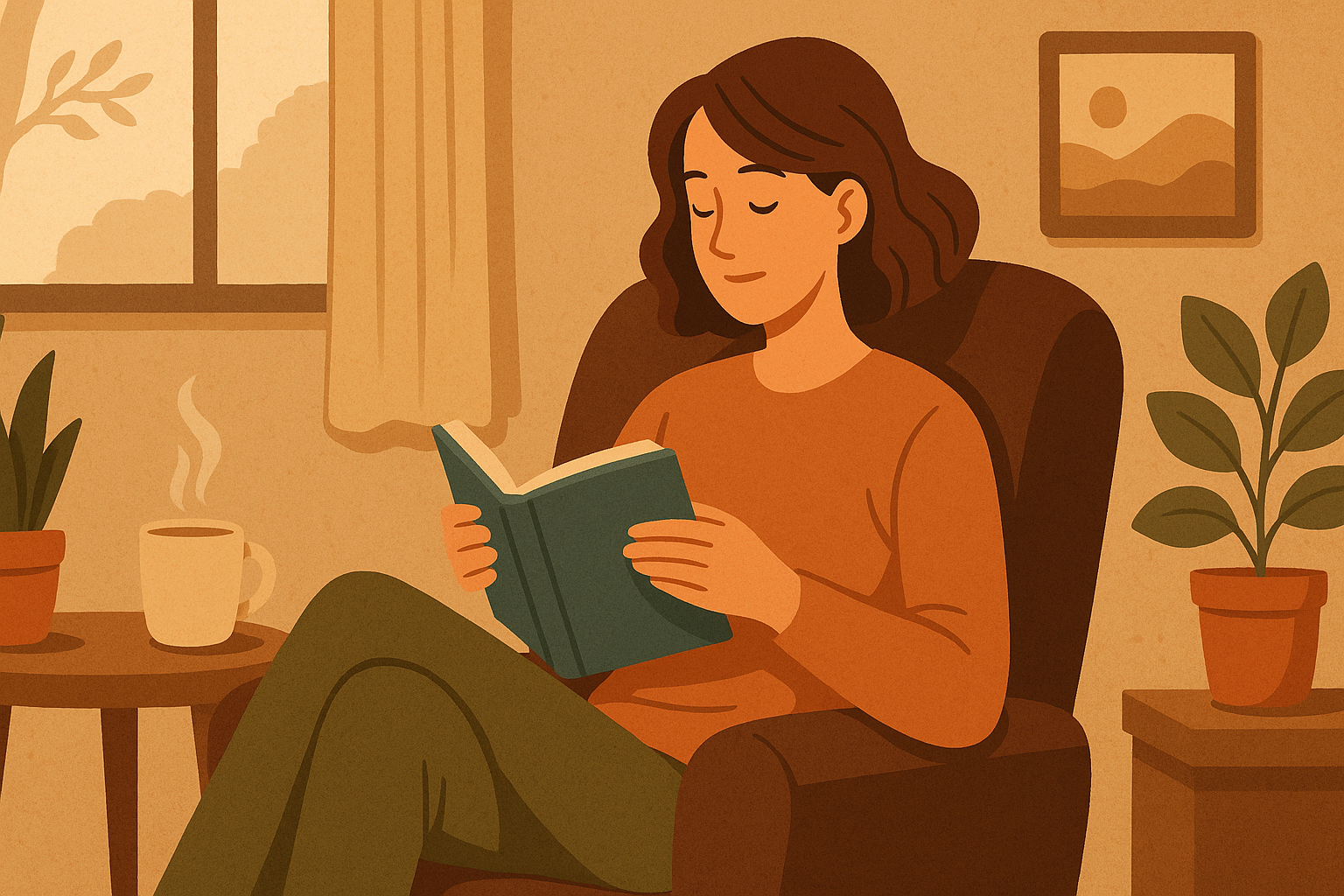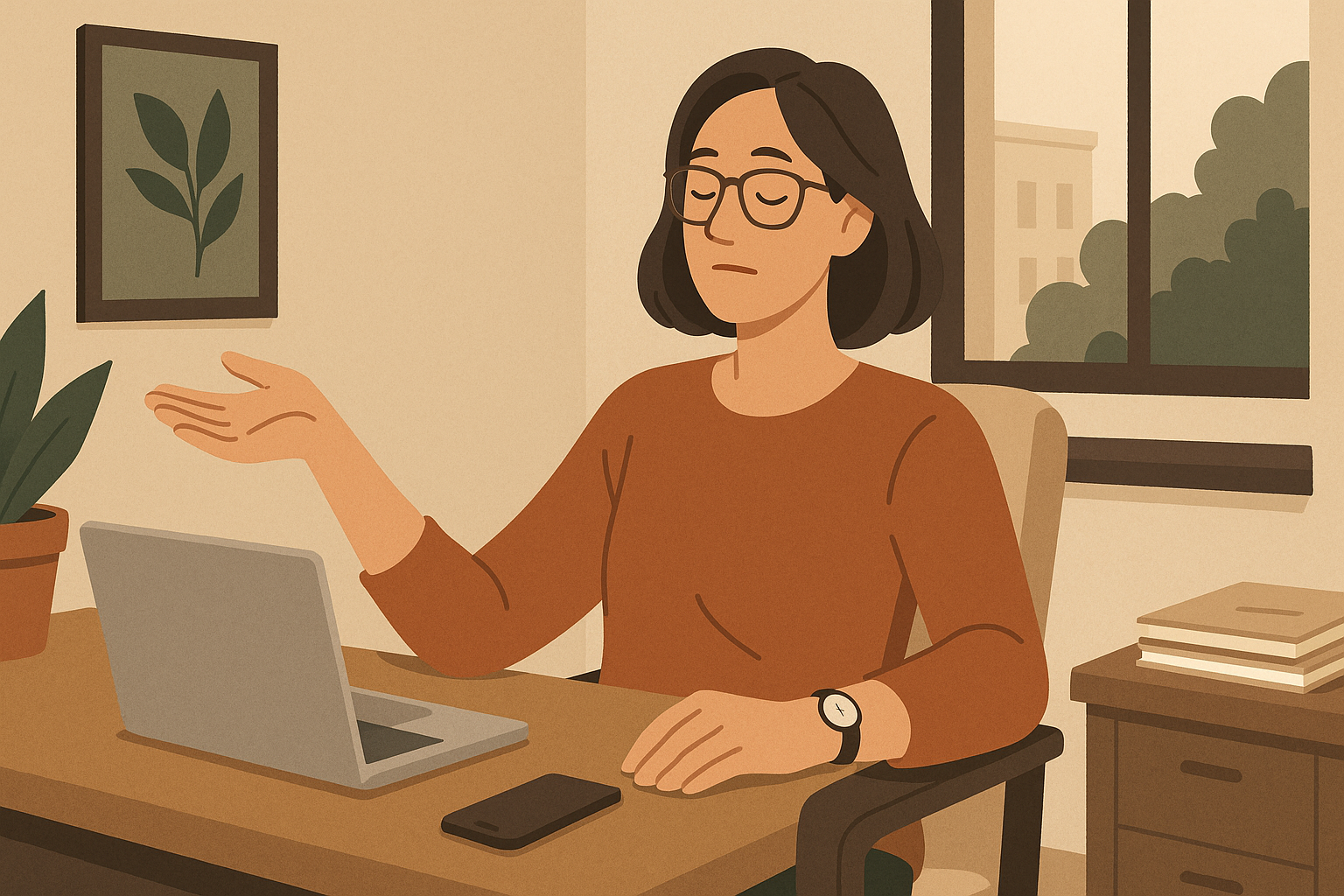Living Slow in a Fast World and Why Unplugging Matters
Living at our pace, I often reflect on how accustomed we’ve become to rushing and constant information noise. Notifications, news, work chats, and social media steal our focus even during moments of rest. It feels like everything around us pushes for speed and multitasking. In the process, the value of calm and thoughtful approaches can simply get lost. I like the idea of finding balance and making space for real rest so I don’t turn into a machine for consuming news and tasks.
Slow Time as a Choice
For me, “living slowly” isn’t about avoiding responsibilities, but about knowing how to set priorities and honestly assess what truly matters. In a world where everything screams “urgent” and “right now,” it’s helpful to remind myself that not every notification deserves an immediate reply. For example, I try to carve out time without my phone or social media just to sit with a book or take a walk with no goal of accomplishing or proving anything. These pauses give me space to breathe and think about what I really want, instead of following what the news feed dictates.I notice it’s easy to rush even in hobbies—wanting to stay on top of everything and not miss anything important. For instance, I follow esports, read EGW news, and try to stay informed, but I don’t let myself refresh pages endlessly or jump from one task to another. I set aside dedicated time to read and actually process information rather than just consuming it nonstop. This approach helps me avoid getting lost in the flood of news and maintain focus on other things that matter.
That’s what slow time means to me—it’s not about rejecting life or duties but learning how to organize them. I’m drawn to the idea of conscious choice: not trying to grasp everything at once but deciding what truly deserves my energy. It’s about paying attention to myself, noticing signs of fatigue, and not being afraid to pause and say, “I’m just going to rest now, and there’s nothing wrong with that.”
Information Diet
I’m convinced that the flow of information needs to be filtered, or it’s easy to drown in noise and lose the ability to concentrate. News feeds are often full of topics that have nothing to do with my life or mood but still aggressively demand attention. Scandals, pointless arguments, endless comment wars—all of it just clutters the mind and leaves a sense of fatigue. I think it’s useful to ask myself: “Do I really need to know this?” or “Will this improve my day?”
I try to limit my time on news and social media, setting boundaries for reading in the evening or morning so it doesn’t stretch out across the whole day. This helps avoid the situation where checking the news turns into endless scrolling and getting stuck. I’ve noticed that this approach gives me more freedom—the day no longer falls apart into fragments interrupted by notifications.
Instead, I choose one thing: an interesting article, a good interview, or a passage from a book. It’s not about rejecting information entirely, but about the quality of what I consume. For example, I might set aside half an hour to calmly read a long text instead of jumping between headlines. To me, it’s like choosing between fast food and a proper meal—less rushing, more depth and benefit. It frees up not just time, but mental space, leaving room for reflection and a calmer approach to the world.
Examples of Unplugging in Everyday Life
For me, it’s not always about radical changes or long vacations far from civilization. On the contrary, I see the real value in building small pauses into an ordinary day. Sometimes it’s enough to simply put the phone aside for an hour and do something with my hands—cooking, cleaning, repotting plants. It creates a sense of physical reality and brings me back to the present moment, where there’s no need to reply instantly or watch for notifications.
I try to go for runs without headphones so I can actually hear the city or nature around me instead of overloading my head even with favorite music or podcasts. When meeting friends, we can agree not to talk about work or check our phones at the table—conversations often become deeper and more genuine that way. While traveling, I like to keep gadgets in my backpack and simply look around, taking in the architecture, people, or scenery without feeling I have to photograph everything or send it to someone.
This same habit is useful at home. For example, having a cup of tea on the balcony without a screen already creates a feeling of slowing down, as if time itself moves differently for a few minutes. I think these small choices not only help restore energy but also keep the mind clear. It’s like cleaning out a mental filter so I can return to my tasks more focused and calm.
Setting Personal Boundaries
I believe it’s important to learn how to say “no” to unnecessary tasks, meetings, and other people’s expectations. It’s not about laziness or avoiding responsibility, but about understanding your own limits and resources. When everything around you demands urgency and constant availability, it’s easy to forget that everyone has a right to personal time and space. For me, it’s primarily about respecting myself and what I’m capable of.
For example, I try not to respond to work messages late in the evening and avoid checking email on weekends unless there’s a good reason. It might seem like a small thing to some, but in practice these rules change a lot. Evenings truly become free—you can spend them with loved ones, enjoy a hobby, or simply take a breath after the day. I appreciate the idea that work shouldn’t consume all of my time and that weekends aren’t just for catching up on everything missed during the week.
I also think it’s important to be clear with colleagues about my boundaries. For example, letting them know when I’m available and when I prefer to focus without interruptions. This creates transparency and reduces stress. If you say yes to everything without thinking, you quickly lose any sense of control or respect for your own time. That’s why I try to be honest both with myself and with others: figuring out what truly matters and what can be postponed or delegated. These personal boundaries don’t shut me off from the world—they help me interact with it in a healthier and more sustainable way.
Conclusion
For me, living more slowly is a conscious choice in a world that values speed and constant connection. It’s not about becoming a hermit, but about knowing how to choose what deserves my attention and time. I believe it’s important to remind myself of the value of the present moment and the ability to be here and now without unnecessary noise.




